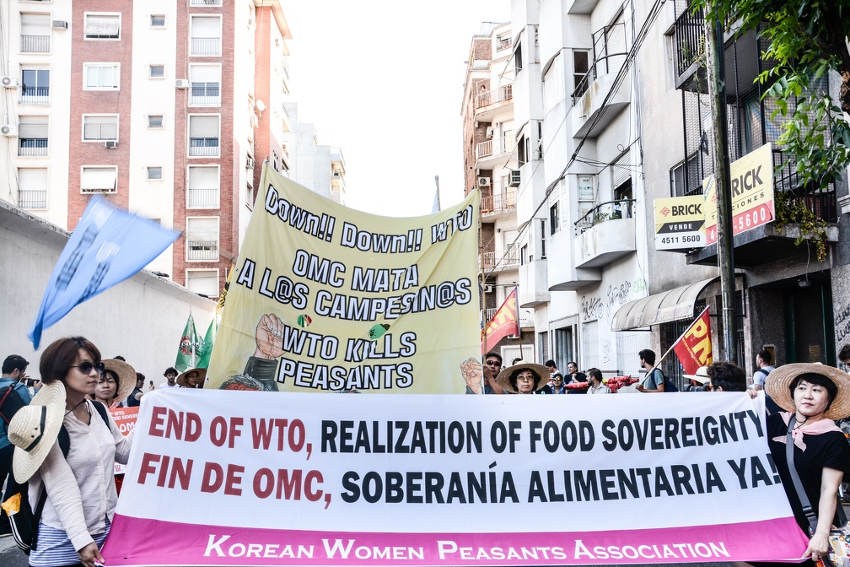In 2003, a Farmer Killed Himself to Protest Globalization. Little Has Changed

Lee’s calls to “keep agriculture out of the WTO” became a rallying cry for groups like La Via Campesina, an international peasant movement of 182 farmer organizations in 81 countries. “La Via Campesina has long been warning the world of the risks of deregulation and unbridled expansion of global capital,” the group wrote in a recent newsletter commemorating Lee and calling for governments to embrace peasant-led alternatives to free trade agreements.
Lee advocated for keeping agriculture out of free trade agreements, in part, because it limits countries’ rights to define their own food policies. Many free trade agreements include rules that actually preclude developing countries from implementing food and agricultural policies that would help feed the poor by empowering peasant farmers. Since 1996, La Via Campesina has promoted the concept of “food sovereignty,” which asserts that countries should have the right to prioritize local agricultural production for local consumption, and implement protections against international prices if necessary to feed its own people.
Free trade adherents tend to spin these realities as the growing pains of a world becoming more prosperous as a whole, but farmers in the developing world tell a different story. “For the economic benefit of some large corporations… Korea’s agricultural base has completely collapsed,” said Jeongyeol Kim, a leader within the Korean Women Peasant Association in South Korea and a member of La Via Campesina. “Sixteen years later [since Lee’s death], the economic gap between urban and rural areas has widened significantly, and because of the neoliberal agricultural system, income gaps in rural areas are increasing and rural communities are collapsing.”
Carlos Marentes, who works with migrant farmworkers on the US-Mexico border and is also a member of La Via Campesina, sees the negative consequences for farmers on both sides of the border every day. “Poverty and landlessness among people who used to rely on sustainable farming is a huge factor in the displacement and destruction of rural communities,” Marentes said. The majority of the people he helps at the farmworker’s center he runs in El Paso, Texas, he said, are former peasants who could no longer provide for their families after NAFTA went into effect in 1994.
“They had no other option than to sell their piece of land,” Marentes said. He recalls one farmer who told him he sold his previously profitable land, in an act of desperation, for the paltry fee of $6,000, the exact amount it would cost to pay a coyote to smuggle him and his family in the U.S.
This is an edited excerpt of an article by Peter Tinti, that was first published by VICE MEDIA on 12 September 2019. To read the full article, click here
